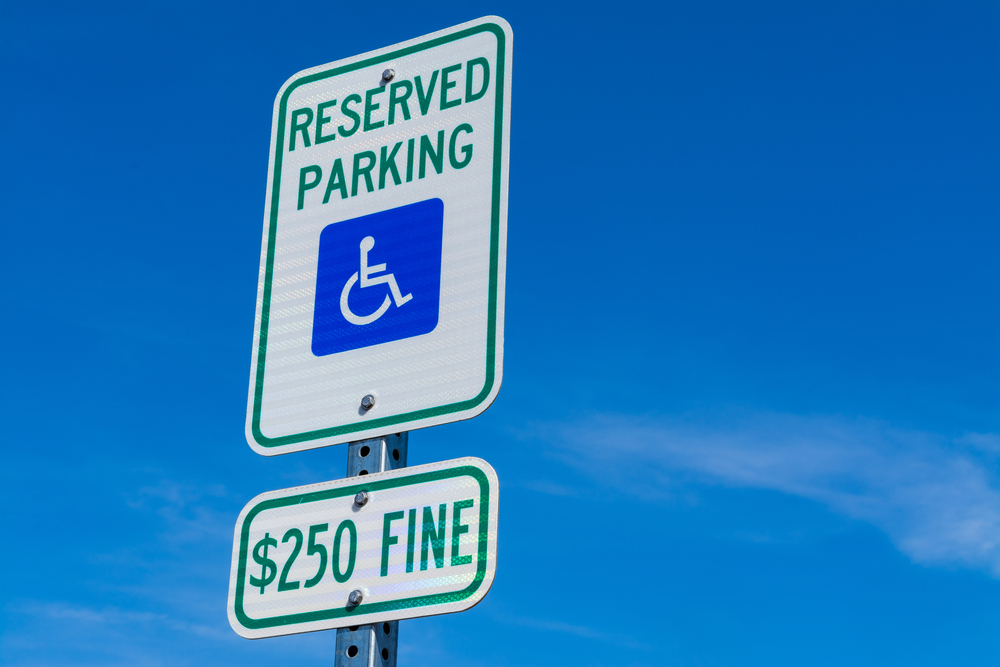Dedicated Handicapped Parking is About Availability, Not Cost


Being disabled by MS does not have many advantages. One — free city street parking in California — is likely to end soon. In the rush to garner parking revenue, though, the lack of concurrent discussion about providing dedicated handicapped parking (DHP) is troubling. The widespread abuse damages accessibility for disabled people, including those of us with MS.
Ignorant people too often do not comprehend that not all disabled people are in wheelchairs. When discussing how to stop abusers, they characterize the “worthy” handicapped as “wheelchair-bound” or “severely disabled.”
We don’t need any stinking disability police!
The abusers might look just like someone with MS. I hop out of my car and carry my books into the library and don’t LOOK disabled. In reality, without the DHP, sometimes I would not be able to go in the library at all. My problem is not solved with free parking. My problem will be solved only with DHP.
They are going to regret giving me that parking ticket
My new role as a disability rights activist was triggered by getting a parking ticket. I discussed my ongoing parking battles in another column as well.
That parking ticket made me think about disability and parking and city streets. Post-ticket, it seemed obvious to me that if parking lots were required to provide dedicated handicapped parking, so should city streets.
And a judge determined cities must provide dedicated handicapped street parking! Furthermore, the ruling held that this requirement must be met near medical care facilities, such as the one where I received my first ticket.
Free is not equal to available
When I was researching what various cities did about DHP on streets, I came across one city that had a great website with search features for parking spots. I tried to find out where the dedicated handicapped street parking places were, but could not figure it out. When I called, and finally connected with a human being, she explained to me that, “Disabled parking is free!”
It took several minutes to explain that the COST was not the problem: AVAILABILITY was the problem. If no dedicated handicap parking exists, then other vehicles will take up all the parking available. Even more to the point, knowing where to find DHP would be ideal. The city should know how many DHP spots it has, where they are, and put that on a map.
I filed a complaint.
Confusion of FREE parking with AVAILABLE and ACCESSIBLE parking is a problem. If there were enough DHP spots, then FREE meters would not be required to compensate for the lack.
While many persons with disabilities (PwD) are poor, so are plenty of able-bodied people who have to pay. Cities need to rethink FREE street parking for PwD, but only if PwD have alternatives.
There should be another way to generate revenue. Parking fees are, in essence, a city tax. Parking should be free for all. Employers should be obligated to provide FREE parking for employees. Then the whole “park at a meter all day” and feeding it (illegal, by the way) would not be necessary. This would free up more consumer parking.
That said, I would be willing to pay for parking for DHP that is now free. AVAILABILITY and ACCESSIBILITY are what people with disabilities need.
***
Note: Multiple Sclerosis News Today is strictly a news and information website about the disease. It does not provide medical advice, diagnosis, or treatment. This content is not intended to be a substitute for professional medical advice, diagnosis, or treatment. Always seek the advice of your physician or other qualified health provider with any questions you may have regarding a medical condition. Never disregard professional medical advice or delay in seeking it because of something you have read on this website. The opinions expressed in this column are not those of Multiple Sclerosis News Today, or its parent company, Bionews Services, and are intended to spark discussion about issues pertaining to multiple sclerosis.







Leave a comment
Fill in the required fields to post. Your email address will not be published.